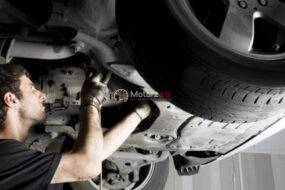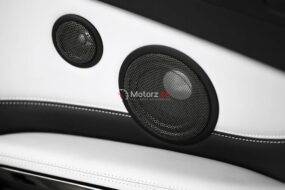Transmission Fluid Leaks Causes and Repair Options is a crucial component in ensuring the smooth operation of your vehicle’s transmission system. When you notice a transmission fluid leak, it’s essential to address it promptly to prevent potential damage to your vehicle’s transmission. In this article, we’ll explore the common causes of transmission fluid leaks and the repair options available.
Worn Seals and Gaskets
One of the primary reasons for Transmission Fluid Leaks is the deterioration of seals and gaskets over time. These rubber components can wear out due to age, heat, and exposure to the elements. When they fail, transmission fluid can escape, leading to a leak. The transmission pan, located underneath the vehicle, can develop leaks if the bolts holding it in place become loose or if the pan itself sustains damage. Regular inspections and maintenance can help prevent this issue.
Faulty Transmission Cooler Lines
Transmission fluid is often cooled through dedicated lines that connect to the radiator. If these lines develop cracks or leaks, it can result in the loss of transmission fluid. Regularly checking these lines for wear and tear is crucial. A malfunctioning torque converter can cause transmission fluid leaks. If the converter’s needle bearings wear out or if there is internal damage, it can lead to fluid seepage. Addressing torque converter issues may require professional expertise.
Damaged Transmission Fluid Cooler
Some vehicles are equipped with an additional transmission fluid cooler. Damage to this cooler, either through corrosion or physical impact, can result in leaks. Inspecting the cooler during routine maintenance is essential.In the intricate dance of components that make up a vehicle’s transmission system, transmission fluid coolers play a vital role. These coolers are designed to regulate the temperature of the transmission fluid, ensuring that it remains within optimal operating conditions.
Seal and Gasket Replacement
When the leaks are due to worn seals and gaskets, replacing these components is a common and effective repair. A qualified mechanic can identify the faulty seals and replace them to stop the transmission fluid leak.The intricate machinery that propels your vehicle forward relies heavily on a network of seals and gaskets to maintain the integrity of its various components. Among these, the transmission system is no exception, and when transmission fluid leaks occur due to worn seals and gaskets, a strategic and meticulous repair approach is necessary.
Transmission Pan Tightening or Replacement
If the transmission pan is the source of the leak, a simple solution may be to tighten the bolts. In cases of significant damage, a replacement pan may be necessary. This is a relatively straightforward repair that can be done by a skilled technician. Repairing or replacing damaged transmission cooler lines is crucial to prevent further fluid leaks. Technicians can identify the damaged sections and either repair them or install new lines to ensure proper fluid circulation.
Torque Converter Repair or Replacement
Addressing torque converter issues requires a comprehensive examination by a professional mechanic. Depending on the extent of the damage, repairs may be possible, or a complete replacement of the torque converter may be necessary. Regularly inspecting the transmission fluid cooler for damage is vital. If issues are detected, repairs or replacements may be needed. This ensures that the transmission fluid remains at the optimal temperature, reducing the risk of leaks.
Conclusion
Transmission Fluid Leaks should never be ignored, as they can lead to severe damage to your vehicle’s transmission system. Identifying the cause of the leak and seeking timely repairs is essential for maintaining the overall health and longevity of your vehicle. Whether it’s replacing worn seals, repairing damaged transmission pans, or addressing issues with the torque converter, taking proactive measures can save you from costly transmission repairs down the road. Regular maintenance and prompt attention to leaks will keep your vehicle running smoothly and efficiently.





